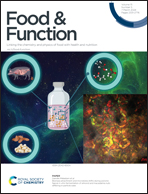Are oilseeds a new alternative protein source for human nutrition?
Abstract
This review focuses on the potential use, nutritional value and beneficial health effects of oilseeds as a source of food protein. The process of extracting oil from oilseeds produces a by-product that is rich in proteins and other valuable nutritional and bioactive components. This product is primarily used for animal feed. However, as the demand for proteins continues to rise, plant-based proteins have a real success in food applications. Among the different plant protein sources, oilseeds could be used as an alternative protein source for human diet. The data we have so far show that oilseeds present a protein content of up to 40% and a relatively well-balanced profile of amino acids with sulphur-containing amino acids. Nevertheless, they tend to be deficient in lysine and rich in anti-nutritional factors (ANFs), which therefore means they have lower anabolic potential than animal proteins. To enhance their nutritional value, oilseed proteins can be combined with other protein sources and subjected to processes such as dehulling, heating, soaking, germination or fermentation to reduce their ANFs and improve protein digestibility. Furthermore, due to their bioactive peptides, oilseeds can also bring health benefits, particularly in the prevention and treatment of diabetes, obesity and cardiovascular diseases. However, additional nutritional data are needed before oilseeds can be endorsed as a protein source for humans.

- This article is part of the themed collection: Food & Function Review Articles 2023


 Please wait while we load your content...
Please wait while we load your content...